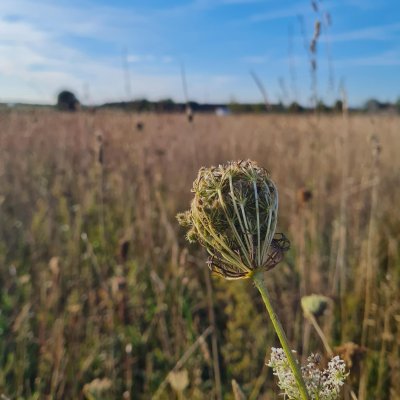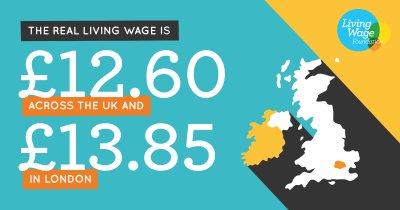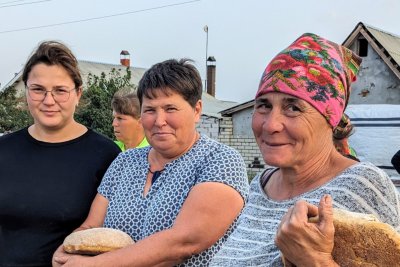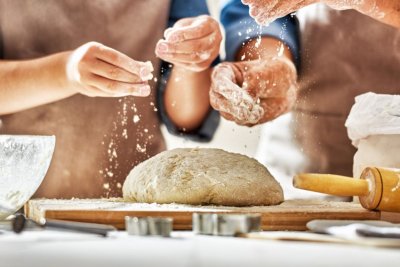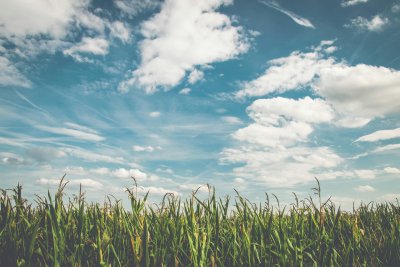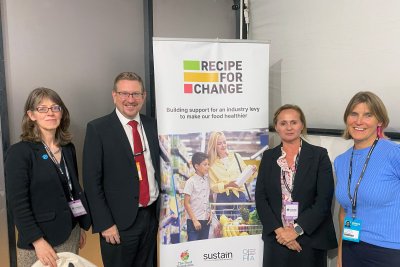Creating chances to choose Real Bread
Campaign coordinator Chris Young on tackling challenges to availability, accessibility and affordability.
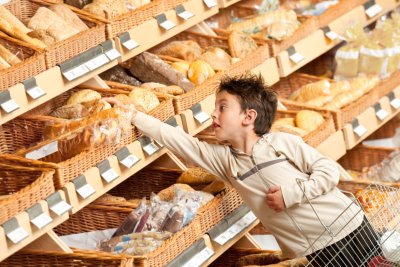
As part of the food and farming charity Sustain, the Real Bread Campaign works towards a future in which everyone has the chance to choose Real Bread. While the majority of us in the UK can make that choice already, far too many people face extra barriers to being able to do so easily.
There is not a one-size-fits-all solution. Instead, we have a jigsaw of proposals for policy makers, bakers and other people within and beyond our current network of supporters and other friends. Each of the pieces will help some people to overcome one or more of the financial, practical or other barriers that limits their chance to choose Real Bread. They include:
- Empowering people with breadmaking skills, knowledge and confidence.
- Putting Real Bread on public sector menus.
- Supporting local, independent bakeries.
- Real Bread For All schemes.
- Updated and improved composition, labelling and marketing standards.
- Sharing knowledge that not all loaves are created equal.
- Big Bakers kicking the additive habit.
What is Real Bread?
To be clear, the Campaign simply defines Real Bread as made without chemical raising agents, so-called processing aids or additives. This encompasses every type and style of leavened and unleavened bread, made by artisans and amateurs alike, enjoyed by people of almost every background and identity around the world. It can be made by the sourdough process but doesn’t have to be.
Breadmaking skills
The ability to make Real Bread is a basket of knowledge, confidence and fundamental skills for life. Being empowered with these can enable virtually anyone to enjoy this delicious, nutritious staple food for pence.
We urge policy makers and educators to put Real Bread making on every school timetable, both inside and outside the classroom. Ideally this will be as part of a whole school approach, which also includes school meals - see below. If you know how to make Real Bread, please share how with your child(ren).
In many families it has been generations since anyone has had Real Bread skills and knowledge to pass on. We want to see more social enterprises, community groups and other initiatives offering subsidised (and even free-to-learner) bread making workshops to adults. A key requirement, of course, is that all of this is adequately funded – probably from a combination of governmental, local authority, charitable and private sources.
We also advocate bringing back into use under-employed bread machines, which can be the most appropriate option for some people who face extra financial or practical obstacles to making Real Bread by hand.
Real Bread on the menu
According to an article published by Public Sector Catering in 2020, more than 2 billion meals are served in the public sector to around 15 million people in the UK each year - at schools, hospitals, care homes, prisons etc. This offers the opportunity to make Real Bread available at subsidised prices (or even free at point of receipt) to about a quarter of the population. The Real Bread Campaign calls for procurement standards and policies that will put Real Bread on these menus.
When Real Bread is bought in from an independent bakery, it helps to support that local economy and community, rather than line the pockets of some distant corporation’s shareholders. Depending on procurement criteria (certified organic, for example), it can have wider beneficial effects. See below for more about small bakeries.
Making Real Bread in house is usually cheaper, while creating opportunities for chefs and other cooks to learn and develop knowledge and skills. This can contribute to improving their job satisfaction and mental wellbeing. There is even the potential for setting up a microbakery, perhaps as a social enterprise, examples of which can be found in (a currently small number of) schools and prisons.
Supporting local bakeries
A big piece (or, rather, many small pieces) of the puzzle of making Real Bread available within easy walking or cycling distance of everyone is having more bakeries and microbakeries at the hearts of our local communities around the UK.
These small, independent businesses help to support more jobs per loaf and keep our high streets alive, so if you have a Real Bread bakery in your neighbourhood, please shop there. You’ll be helping to nurture (and you’ll get to enjoy) something fundamentally different than if you buy an additive-laden factory loaf/wrap/roll/whatever or supermarket loaf tanning salon baguette.
An increasing number of Real Bread bakers are participants in non-commodity grain networks. These regional alliances of grain experts, farmers, millers, bakers and others choose what, where and how grain is selected, grown, milled and turned into Real Bread. Typically, they prioritise flavour, nutrition, community benefit, and work to minimise negative (and even create positive) environmental impact.
The Real Bread Campaign champions Real Bread and the people who make it, offering guidance and challenging obstacles to their rise. We also continue to call on policy makers to offer more support for these small businesses. We are in the process of writing a Real Bread Manifesto of proposals for the next government.
Real Bread For All
Too many people’s food (and other) choices are limited by not having enough money in their pockets. Other than a food business that underpays its employees, most root causes of poverty lie outside the food sector. Sustain, the charity that runs the Real Bread Campaign, is one of the organisations that continue working to address these factors.
It would be difficult to impossible for a small, independent food producer to compensate for the root causes of poverty and remain financially sustainable, nor should they have to. What small producers do and create has real value. Meanwhile, ever-increasing costs of what they have to cover (rent, energy bills, staff costs, ingredeints etc.) mean they operate on very slim (and increasingly precarious) margins.
All that said, we encourage bakery owners to consider how they can be part of a short-term safety net beyond sending leftover loaves to foodbanks. There is a gap between what it costs small bakeries to make Real Bread and what people in their communities on the tightest budgets can realistically afford. Our Real Bread For All guide includes suggestions of how a small bakery can work with others (customers, local authorities, charities, community groups, other businesses etc.) to bridge that gap.
An Honest Crust Act
Beyond people simply having the chance to choose, we want everyone to have the opportunity to make better-informed choices and fair comparisons. We want people to know they’re getting what they believe they’re paying for, and if they’re choosing between products, how similar or different they really are.
Key to this are our Honest Crust Act proposals for updated and improved composition, labelling and marketing standards. For whatever reasons people need or want to know, it should be easy for them to see what ingredients and, where applicable, additives were used. This includes introducing mandatory ingredients lists for products sold loose/unwrapped and the requirement to list so-called processing aids, which manufacturers and retailers currently don’t have to declare.
We’re also working to ensure that claims like ‘freshly baked’ can no longer be used to hide the half-baked truth; and that ‘wholegrain’ and ‘wholemeal’ can’t be used to market products that are 50% or more white flour. Another proposal is that companies should no longer have the ability to use terms like ‘artisan’ to mislead shoppers into buying (and even paying a premium for) products cheaply manufactured by industrial means.
Not all loaves are created equal
Knowledge of other factors can also have an effect on the food choices that some people make. On the one hand, knowing the socioeconomic benefits that a local, independent bakery offers (see above) on top of producing delicious, nutritious Real Bread can encourage sales. Better still if that Real Bread is wholemeal, while making bread by the sourdough process might offer additional health and nutritional benefits.
On the other, we ask what hidden costs might lie behind the low checkout price of an industrial dough product. Questions and concerns are gathering around ultra-processed food (UPF), one of the most widely consumed examples of which is the Chorleywood Process loaf. What displaced, overlooked and perhaps even hidden costs of a diet heavy in UPF might there be in terms of human health and nutrition (therefore to the NHS and so to most of us as taxpayers); local communities and economies; and the environment?
Are we saying that eating a single white-sliced factory loaf sandwich will kill you and your community? No. Will one piece of genuine sourdough bread from a local artisan bakery cure all ills and make Britain great again? Again, no, but a better understanding of the true costs of one product and the real benefits of the other will feed into the decisions that some people – particularly those not in poverty – make. As well as greater honesty and transparency, funding into more research is needed.
Big Bakers getting real
One way to ensure that millions of people would have the chance to choose Real Bread is if supermarkets and other industrial manufacturers kicked their additive habit, turning at least some of their production over to non-UPF baking.
We know this proposal won’t go down well with everyone in our network and, for a whole range of reasons, we’d also prefer that people could enjoy Real Bread made in their own kitchens or by local bakeries. Collectively, however, the Big Bakers could make Real Bread available and affordable to almost everyone, if they chose to.
Last slice
Even if we – as a Real Bread movement and society as a whole – do all of these things, there will be people who still pick additive-laden industrial dough products. We will be assured they do so having been given a realistic chance to choose Real Bread.
Join the Real Bread Campaign
If you believe in and support the above, here are ways that you can help our charity to keep championing Real Bread and the people who make it, while challenging obstacles to their rise.
Published Wednesday 20 March 2024
Real Bread Campaign: The Real Bread Campaign finds and shares ways to make bread better for us, better for our communities and better for the planet. Whether your interest is local food, community-focussed small enterprises, honest labelling, therapeutic baking, or simply tasty toast, everyone is invited to become a Campaign supporter.

